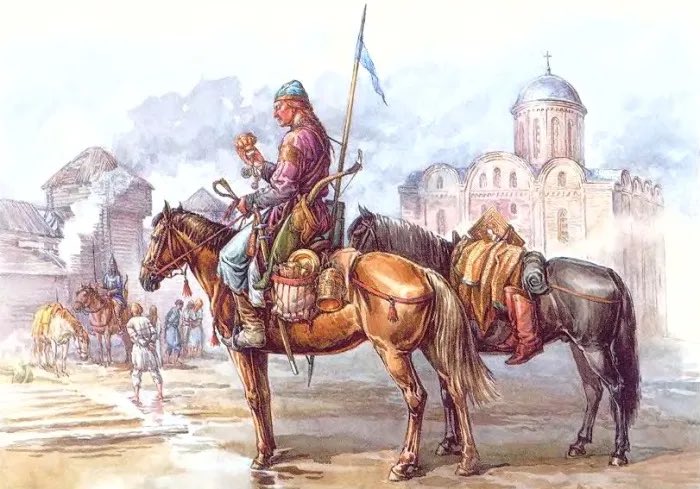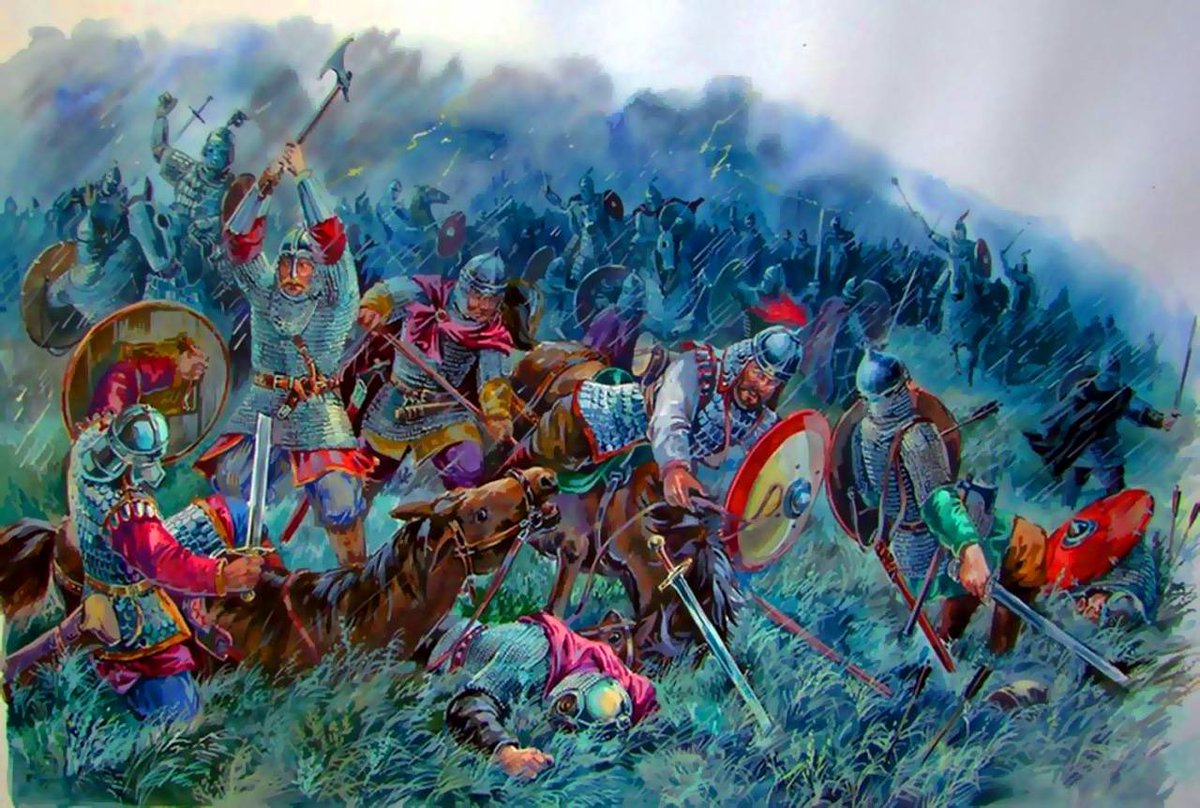Bulgaria has been drowned in a sea of blood by the mighty warlord Sviatoslav. Emperor John Tzimiskes has offered peace & been rebuffed, Sviatoslav warning the Byzantines to vacate Constantinople as he intends to take it. Desperate measures must be taken - spies dispatched… 

The great host of Rus, Slavs, Norse, Pechenegs, & Bulgarians that menaced Thrace were a mystery to the Byzantine army. Without an understanding of their forces the Byzantines were blind to devastating raids & worried they would stumble into a battle of Sviatoslav’s choosing. 

To prevent this picked men, fluent in both Greek & Slavonic/Norse, were selected to infiltrate Sviatoslav’s army & act as spies. These men dressed in Rus garb & slipped into the enemy camp, the men of Sviatoslav’s swollen army none the wiser. 

Soon these spies relayed to the Byzantine general Bardas Skleros that a large contingent of Sviatoslav’s army was marching on Thrace bolstered by Bulgars, Pechenegs, and Magyars. 

This cavalry force threatened to ravage Thrace & without good intelligence would be too fast to bring to battle. Bardas sent John Alakas, a Byzantine of Pecheneg origins, to scout out this force. Bardas gave clear instructions to note the size, location, & intent of the enemy. 

John sent a rider back to Bardas the next day. The enemy was near & Bardas should offer battle immediately. Bardas set an ambush, lured in Sviatoslav’s marauders, & delivered a crushing defeat to the invaders. 

The Battle of Arcadiopolis (970 AD) was a crucial victory for the Byzantines. It secured Thrace, allowed the Emperor to quell rebellions against his new rule, & crippled Sviatoslav’s offensive, giving the Byzantines much needed time to assemble & organize their military to attack 

This battle also is an excellent example of Byzantine military organization & sophistication. Through the intelligent use of spies, scouting, & a textbook ambush, the Byzantines were able to crush a force three times their size. 

Although a formal Byzantine spy network has never been proven, anecdotes like this show the skill the Byzantines possessed in espionage, something of critical importance to the Empire eternally surrounded by enemies. 

Leo the Deacon doesn’t expound on the tales of John Alakas & the Rus spies but one can only image the electrifying details of their covert operation to infiltrate & help destroy Sviatoslav’s war machine before its tide of blood lapped at the Theodosian Walls. 

• • •
Missing some Tweet in this thread? You can try to
force a refresh



















